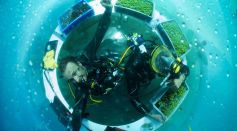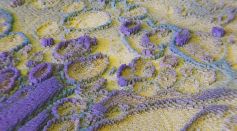DESIGN

Sustainable Floating City to House 50,000 People: Proposed Design of 25 Hectares Interconnected Platforms Will Use Zero Energy

How to Design a Desirable Event Space

Ancient Rome Had Extremely Durable Concrete Structures Thanks to Their Materials and Techniques
Top 10 Most Popular Science Times Stories of 2022
$300,000 Flying Car That Flies Like an eVTOL, Drives Like an Automobile Could Become Available to the Public by 2025

Transparent Window Coating Can Help Cool the Room, Saving 31% of Electric Cooling Costs

Breathtaking Biospheres Houses a Vegetable Garden Grown 25 Feet Underwater

Ancient Assyrian Artwork Not Seen for 2,600 Years Discovered in Site Destroyed by ISIS

Farmer Unearths an Ornate Byzantine Floor Mosaic in Gaza While Planting an Olive Tree

Scientists Created Colorful Solar Panels to Make Them More Captivating to Onlookers

Is AI Art Really Art? Technical Progress in Computer Vision Led to More Self-Described AI Artists in the Past Few Years

First Perovskite Solar Cell That Could Last 30 Years Marks Major Milestone for Emerging Class of Renewable Energy Technology

Prehistoric Stone Tablet Art From 15,000 Years Ago Likely Made Using Firelight, Study Claims

4 Science Hacks That Will Make Your Life Easier
Most Popular

Universe Origin Revealed: Exploring the Latest Big Bang Science Theories and Discoveries

Big Bang Physics and Cosmology: Can Science Really Explain the Origins of the Universe?

What Causes Tornadoes and How They Form: Tornado Science Explained for Extreme Storms

Space Tourism Future: How Commercial Space Travel Will Transform Civilian Exploration





